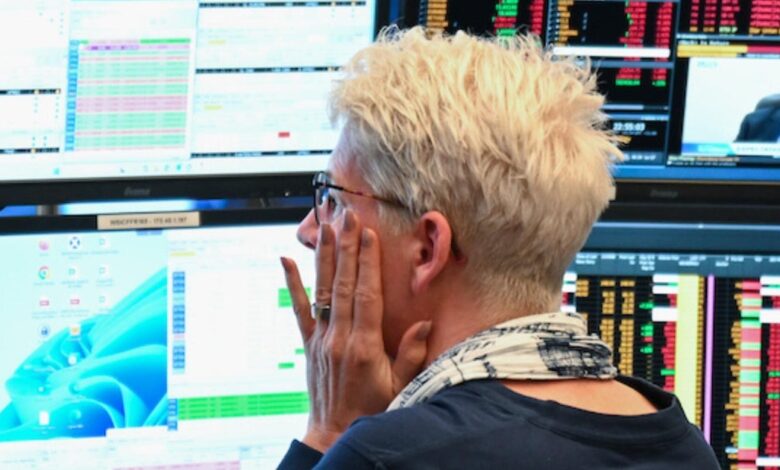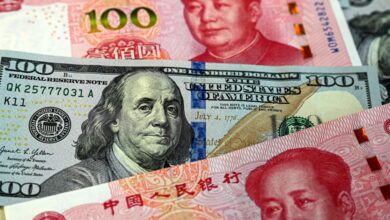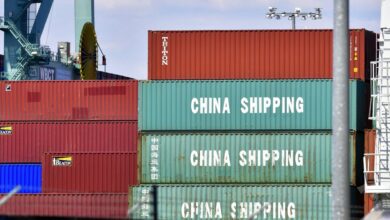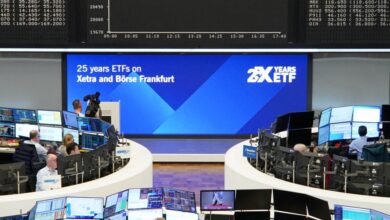Stocks soar after Trump pauses reciprocal tariffs on most countries for 90 days

The stock market experienced a significant surge on Wednesday following President Trump’s announcement of a 90-day pause on reciprocal tariffs. The President also stated that he would be reducing the tariff rate to 10% for most countries with immediate effect. This news led to a remarkable increase in the Dow Jones Industrial Average by nearly 2,200 points, or 5.8%, reaching 39,827 in afternoon trading. The S&P 500 also climbed 339 points, or 6.8%, while the Nasdaq composite index jumped 1,300 points, or 8.5%.
However, China was excluded from this decision, as President Trump declared an increase in the tariff rate on goods imported from China to 125%. This move was attributed to China’s lack of respect for the world’s markets, according to the President. Prior to this announcement, the S&P 500 had been on a downward trend, down by about 17% from its mid-February peak, nearing a bear market territory.
Investors have been concerned about the escalating trade war initiated by President Trump, fearing its potential to trigger a recession and negatively impact U.S. corporations and consumers by increasing prices on products from various nations. The trade war has been a point of contention on Wall Street, with economists warning about its adverse effects.
Despite some optimism on Wall Street that the White House might reconsider its tariff policies, the trade war between the U.S. and China continued to intensify. China announced that it would raise its tariffs on U.S. products to 84%, up from the previously announced 34%, in response to President Trump’s import duties on Chinese goods. This move indicates that Beijing is not backing down from the trade war initiated by the U.S.
The impact of Mr. Trump’s reciprocal tariffs, which apply to imports from almost every nation, was felt as they went into effect. Corporations such as Delta have already started to feel the repercussions of these tariff policies, with the airline withdrawing its guidance for 2025 due to a decrease in bookings across the travel sector. CEO Ed Bastian highlighted the economic uncertainty around global trade, stating that growth has stalled, and the focus is on protecting margins and cash flow.
As the corporate earnings season commences in the U.S., investors will closely monitor the guidance provided by large companies like Delta to gauge the impact of the trade war on their operations and financial performance. The market remains volatile amidst the escalating trade tensions, and investors are advised to stay informed and cautious in their decision-making.





